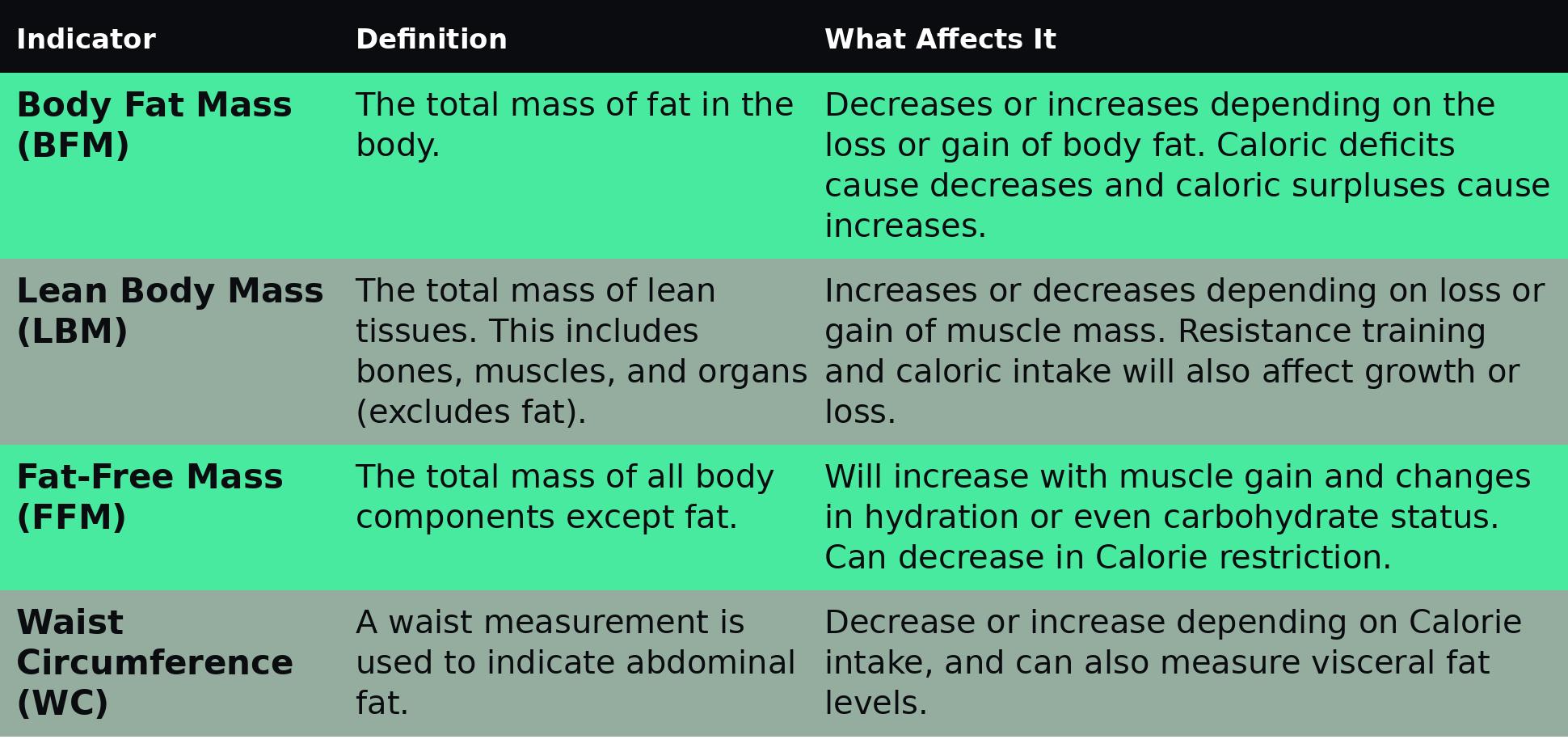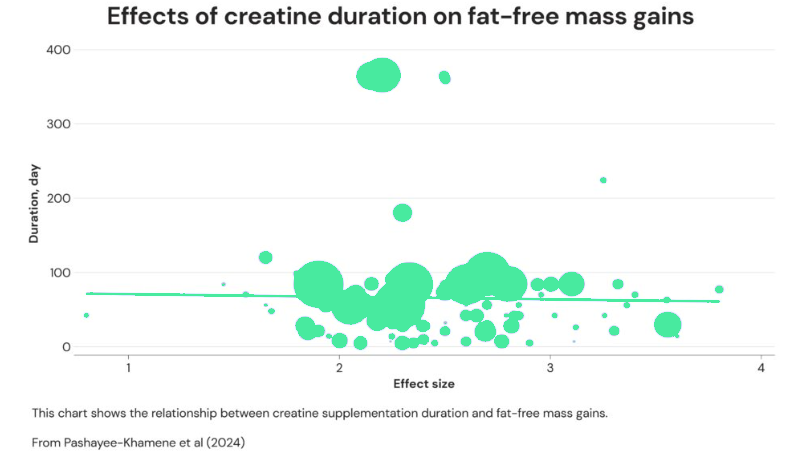The Best Supplements for Body Composition
In the second part of our trilogy about dietary supplements, we examine how they can affect body composition and which ones are truly worth incorporating into your routine.
Introduction
This is the second article from a series of three texts that explore the role of dietary supplements and their actual value in three key areas:
- athletic performance
- body composition
- general health
In this article, we’ll focus on supplements that can help improve body composition. At the same time, we’ll explain in simple terms what body composition means and what you should consider when trying to improve it through supplements.
Let’s break it down!
A Quick Reminder from the Previous Article
In the first article of the series, we discussed what dietary supplements are. We also presented the three top supplements with the strongest documentation and explained how they work, why they matter, and what you should know before trying them.
Even if you’re interested in supplements exclusively for body composition purposes, it’s worth checking out that article to gain a more comprehensive understanding and understand how they can work together to better support your goals.
What Is Body Composition Really?
When researchers study body composition, they primarily focus on two things: increasing muscle mass or reducing body fat. Body composition is a more holistic approach than simple body weight, because two people with the same height and weight can have completely different distributions of muscle and fat.
That’s why we shouldn’t confuse supplements that help improve body composition with those that solely target weight loss. For example, reducing fat without losing muscle is a clear indication of improvement, as is increasing muscle mass without gaining fat.
Of course, things aren’t quite that simple. To increase muscle mass substantially, resistance training is essential. On the other hand, significant reduction in body fat requires a caloric deficit. Studies often investigate whether a supplement alone positively affects these factors or if it can enhance results when combined with exercise or dietary interventions. So, body composition involves many variables – something that makes interpreting scientific data more demanding but also more interesting.
Another point that complicates matters is exactly what studies measure. Usually, they don’t measure pure muscle mass, but rather indicators such as lean body mass (LBM) or fat-free mass (FFM). This is because measuring total muscle mass is technically more challenging.
In most cases, changes in lean mass or fat-free mass indicate changes in muscles. However, because these measurements include body water, some supplements that affect tissue retention or hydration might inflate the numbers without representing actual muscle mass increase.
Protein: The Essential Supplement for Body Composition
Protein is perhaps the most fundamental and well-documented supplement for anyone looking to improve their body composition. The main reason is simple: it contributes to the increase of lean body mass, primarily muscle mass. However, for real muscle growth to occur, the presence of resistance training is essential. Additionally, the body’s caloric needs must be met. Many studies examining protein supplementation do not always include these parameters, resulting in outcomes that appear moderate or unimpressive. However, when protein is combined with weight training and adequate caloric intake, research consistently shows that it can support muscle mass increase and overall lean body mass.
In simple terms: without training, protein alone does not work wonders. However, with training, it is a valuable ally.
Effects of Protein Supplementation on Lean and Muscle Mass with or without Resistance Training
From Zhou et al (2023)
Protein Not Only Builds Muscle – It Also Aids in Fat Loss
In addition to supporting muscle growth, protein supplements seem to contribute to the reduction of body fat. For example, a meta-analysis of randomized clinical trials showed that the consumption of whey protein led to a significant reduction in Body Mass Index (BMI). There was also a small – although statistically insignificant – reduction in total fat mass. Although the results were not impressive in terms of fat, the fact that they are combined with positive changes in body composition makes protein one of the most “versatile” allies for your fitness.
Group Analysis of the Effects of Whey Protein on Body Composition
Protein: Support for Muscle – Not a Magic Pill for Fat
The studies are clear: protein supplementation consistently helps maintain or even increase lean body mass, whether we are talking about women or the elderly. This is particularly important as the body’s ability to synthesize muscle protein naturally decreases with age.
In simple terms, it is no surprise that protein helps increase muscle mass. However, when it comes to fat loss, the results are less clear. This is because there are two important things to remember:
First, protein is a macronutrient with calories – it is not “free.” If you are trying to reduce your fat, you need to decrease your overall caloric intake. So, if you add calories through protein supplementation without adjusting your diet elsewhere, you may hinder your goal.
On the other hand, higher protein intake increases feelings of fullness and reduces cravings for carbohydrates and fats. This combination may explain why adding protein through supplements does not usually lead to fat gain, but neither does it result in impressive loss – nonetheless, it can help indirectly.
Second, when you are in a caloric deficit, the primary goal is to lose fat, not muscle or water mass. In this case, protein acts protectively for the muscles, which is why fat loss may appear small. The most important thing, however, is that this way you maintain your muscle mass, which is critical for your metabolism and overall appearance.
Overall, protein is one of the most well-documented supplements you can choose. As mentioned in the first article, you do not necessarily need to take it from supplements – if your diet sufficiently meets your needs with protein-rich foods, there is no need to add anything.
However, if you struggle to meet your daily needs from food alone or want an easy solution post-workout, protein supplements are an excellent tool – especially if your goal is to increase muscle mass or maintain it while dieting.
Creatine: The Supplement that Supports Muscle and Body Composition
When we talk about body composition, creatine is one of the most studied and effective supplements. Its main action involves increasing lean body mass – and more specifically muscle mass – through various mechanisms.
A systematic review and meta-analysis that examined the effect of creatine combined with resistance training in individuals under 50 years old showed that creatine supplementation led to a moderate increase in lean body mass, both in trained individuals and beginners.
Similar findings were presented in another recent meta-analysis with GRADE assessment, which analyzed the dose–response relationship of creatine. This study showed that even with typical doses and duration of use, there was a positive – albeit moderate – effect on lean mass.
The recommended dosage usually includes a loading phase: 20 grams per day for 5 to 7 days, followed by a maintenance phase of 2 to 5 grams per day. As we have discussed before, the loading phase may cause mild gastrointestinal discomfort in some, so if this is a concern for you, you can simply start directly with the lower dose – you will reach the same saturation level, just a bit more slowly.
Overall, creatine is an excellent tool for anyone looking to support muscle development and improve their body composition safely and with long-term evidence.
Creatine: More than Just Simple Water Retention
It is worth noting that the increase in lean body mass from creatine use may be partly due to increased water retention. Creatine has the property of pulling water into muscle cells, causing an initial “bloat” on the scale – something that is more commonly observed during more aggressive loading phases.
However, many studies take this factor into account and show that the increase in lean mass is not solely due to water. Creatine appears to directly enhance muscle mass beyond the temporary increase in water or glycogen. In simple terms, its benefits are not superficial – it is a supplement that supports real muscle growth. This is why it is considered an excellent choice for anyone aiming to improve body composition.
Creatine and Fat: A Small but Existing Effect
Regarding fat reduction, a meta-analysis by Forbes et al. that examined 19 studies with 609 participants (elderly individuals taking creatine and engaging in resistance training) showed a small reduction in body fat percentage and fat mass. Although the reduction in fat was not statistically significant, the trend was positive. Similar results were presented in the study by Desal et al, with reductions in both the percentage and total amount of fat.
What makes creatine even more interesting in relation to fat loss is that – unlike protein – it contains no calories at all. This means it can provide benefits without adding energy, which is valuable when you are in a caloric deficit.
Although the results are modest, creatine can support the fat loss phase while maintaining muscle mass – which is the real goal when trying to “dry out” your body properly.
Caffeine: How It Can Help with Body Composition and Fat Loss
To start, a small reminder: caffeine is known for its stimulating action, primarily because it blocks adenosine receptors, thereby reducing feelings of fatigue and drowsiness. This leads us to the first point: caffeine can support the improvement of body composition – especially regarding the reduction of body fat.
A systematic review and meta-analysis with dose–response analysis, which included 13 randomized controlled trials with 606 participants, showed that caffeine consumption can contribute to weight loss, BMI reduction, and fat mass reduction. In fact, the greater the caffeine intake, the more pronounced the reductions – something that researchers attributed to greater adenosine inhibition, which in turn may increase energy expenditure.
If you think about it simply, the goal in fat loss is to create a stable caloric deficit. However, this can lead to fatigue, lethargy, and a drop in energy. That’s where caffeine comes in, helping you better manage these side effects. Additionally, it is likely that the increased energy from caffeine leads to spontaneous increases in physical activity – and thus higher energy expenditure. Not everyone reacts to caffeine in the same way, but for many, it is one of the most “intuitive” aids for fat loss.
Caffeine also has other properties that may help with body composition. For example, it may activate metabolically active brown adipose tissue, which increases thermogenesis and energy expenditure. Furthermore, it may enhance lipolysis – that is, the mobilization of fat from the body’s stores. Finally, on a practical level, it may simply give you the necessary energy to go for a workout when you otherwise would skip it.
In short, caffeine can contribute in various ways to improving body composition – but the most practical and common is that it provides “calories-free energy” during periods of caloric restriction.
HMB: A Supplement for Maintaining Muscle Mass
HMB (beta-hydroxy-beta-methylbutyrate) is a derivative of the amino acid leucine, which is known for its ability to stimulate muscle protein synthesis. HMB, on the other hand, seems to work more protectively – reducing muscle breakdown, especially in catabolic conditions.
It is usually available in powder or capsule form, and the most studied dose is 3 grams per day. There are two main forms: HMB-Ca (combined with calcium) and HMB-FA (free acid). Although some research suggests that HMB-FA may have better absorption, others support that the final results are similar – so you can choose based on cost or ease of intake.
When It Makes Sense to Take HMB
The main action of HMB appears to be anti-catabolic, meaning it reduces muscle wear. Thus, if leucine is the “trigger” for muscle synthesis, HMB is the “guardian” of muscle mass. This makes it useful in cases such as:
- If you are a beginner in weight training
- If you are returning to training after a break
- If you are in a caloric deficit and want to protect your muscle mass
Especially in older adults, who are more prone to muscle loss, HMB seems to work quite well. A systematic review examining HMB supplementation in older adults found that it helps maintain muscle strength and mass, even in conditions of immobility or hospitalization. Similar benefits have been observed in individuals of different genders and populations without prior training experience.
On the other hand, the results are more limited when it comes to trained individuals or athletes. There, the benefit seems to diminish – likely because their bodies are already effectively managing muscle remodeling through training and nutrition.
Is It Unnecessary If You Eat Enough Protein?
A reasonable question is: do you need HMB if you are already consuming enough protein or leucine? Since HMB comes from leucine, wouldn’t it be simpler to just take more leucine? The truth is that science has not yet provided a clear answer. However, quite a bit of data suggests that HMB may offer additional protection against muscle wear in vulnerable situations.
The positive aspect is that, aside from the taste and smell that may be unpleasant for some, HMB seems to have minimal or no side effects.
Betaine: A Promising Supplement for Body Composition
Betaine is a natural compound primarily derived from sugar beets, although it is also found in other foods such as spinach and seafood. It belongs to the category of quaternary amines (don’t worry about the term – it simply means that it is stable and acts through various mechanisms in the body).
The recommended dose starts around 2.5 grams per day and, according to studies, is well tolerated without significant side effects. However, very high doses (above 9 grams) may affect blood lipids, so it is advisable to follow the recommended dosage.
How Betaine Works in Body Composition
Unlike other beetroot supplements that work by increasing nitric oxide (improving blood flow and nutrient delivery), betaine acts differently. One possible mechanism is the enhancement of enzyme activity involved in fat breakdown. Additionally, it may reduce homocysteine levels – something that is also related to fat mobilization.
A meta-analysis by Gao et al. concluded that betaine supplementation is associated with a reduction in total fat mass and body fat percentage, although its effect on weight or BMI was negligible. In several studies, a small increase in lean body mass was also observed.
The Effect of Betaine on Body Fat
It is also worth noting that the results were more pronounced when betaine was combined with exercise. This reinforces the idea that the action of betaine has real value in the context of an active lifestyle.
What Really Holds True for Betaine – And for Supplements in General
Although the initial data around betaine is quite encouraging, the picture is not entirely clear. Another meta-analysis by Ashtary-Larky’s team concluded that the effects of betaine on body composition are not as impressive as some initially believed. In simple terms, science is still evolving and studying the topic – but there is certainly potential.
Supplements Are Supportive – Not Magical
All of this leads us to an important (and perhaps “unpopular”) conclusion: supplements are not magic solutions. They will not do the work for you.
Their role is to enhance the efforts you are already making – not to replace them. This is absolutely true in improving body composition. Muscle growth requires systematic resistance training. Fat loss requires a caloric deficit. These are the foundations. Supplements, when used correctly, can help you reach your goals more easily or quickly – but they will never replace the basics.
Investing in proper nutrition, sleep, training, and consistency has a greater impact than seeking the next “miracle product.” And when these are in place, then supplements gain real value.
TL;DR – Supplements for Body Composition
Improving body composition primarily depends on your goals and plan – caloric deficit for fat loss, resistance training for muscle mass increase. However, certain supplements can make the process a bit easier or more effective:
- Protein: Helps increase muscle or maintain lean mass, especially when in a caloric deficit.
- Creatine: Increases lean mass and provides energy, even during periods of calorie restriction.
- Caffeine: Boosts energy when dieting and can support your performance in training.
- HMB: Useful for beginners, those returning to training, or undergoing aggressive cutting.
- Betaine: May help with fat breakdown, but a caloric deficit is needed for significant change.









